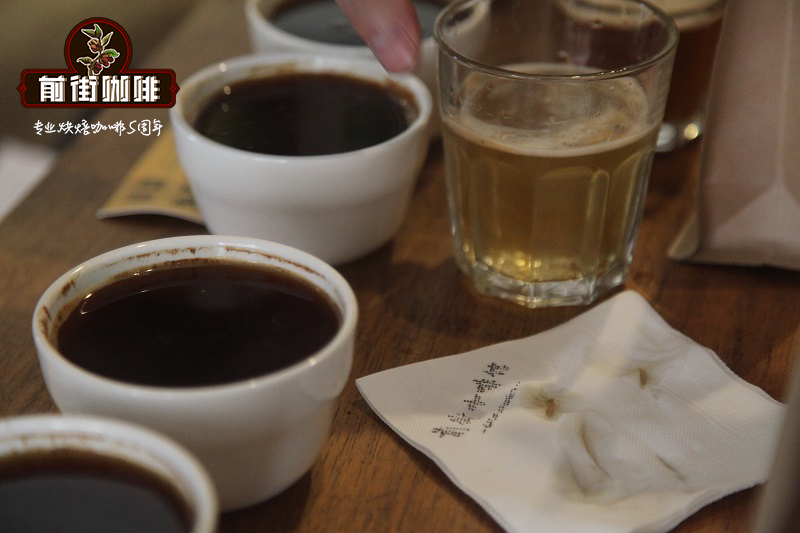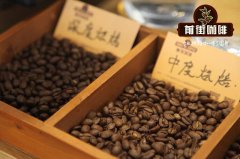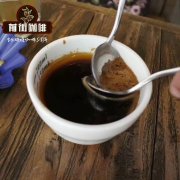Introduction to the origin of coffee beans honey AATop Kenya coffee suitable for hand-brewing

Professional coffee knowledge exchange more coffee bean information please follow the coffee workshop (Wechat official account cafe_style)
Honey AA Top in Neri, Kenya
Washing treatment 2017 in the new production season of 1800m
This is a perfect AA special mixed batch.
Planted by different small farmers on the slopes of the magnificent Aberdare Mountains in Kenya.
It produces a well-managed central coffee processing plant composed of small farmers from Nyeri and Kirinyaga counties.
This batch, named "Honey", is an excellent blend of different unique attributes.
The cup test results produce a very unique complexity!
Fresh berries, caramel, grapefruit, coffee berries sweet, bright and juicy, crisp and sweet, recommended hand-brewed coffee
The Gachatha Gachasha processing plant in Nyeri, Kenya's main coffee origin, collects raw beans grown by about 750farmers nearby, planting an average of 200 coffee trees per farmer and treating the beans with traditional Kenyan washing. The biggest feature of this place is that the shade is dominated by banana leaves, with fresh peach blossom aromas, cream and wild flower honey taste, red currant, kumquat acidity, acidity is the focus of Kenya.
The history of coffee cultivation in Kenya dates back to the end of the 19th world, and coffee trees were planted by neighboring countries in the north.
Introduced into Ethiopia and improved by its own varieties, the common varieties are bourbon species.
(Bourbon), Ken Special (Kents,SL34, SL28), Tibica (Typica) and
Four varieties of Luli 11 (Riuri 11). Most Kenyan coffee is uncertified.
Organic cultivation, due to the use of improved planting techniques, rarely uses chemical pesticides or herbicides.
Kenyan premium coffee (AA Plus, AA, AB, PB) are all washed and sun-dried beans.
The low-grade products of non-washing treatment (non-washing 39% buni) are for local use only.
Important Notice :
前街咖啡 FrontStreet Coffee has moved to new addredd:
FrontStreet Coffee Address: 315,Donghua East Road,GuangZhou
Tel:020 38364473
- Prev

World's most expensive Coffee list 2018 the latest edition of the most expensive Rosa coffee beans cost thousands of dollars
Professional coffee knowledge exchange more coffee bean information please follow the coffee workshop (Wechat official account cafe_style) the latest world's most expensive coffee list NO.1 name 90 + company's # 227 lots: 90 + Panama Manor Price: in this year's sensational online bidding for raw coffee beans, 90 + company's # 227 batches were finally written down at a high price of US $US$5000 per kilogram.
- Next

Manning, the star of Indonesia, introduces the origin of coffee beans and coffee suitable for hand-brewing.
Professional coffee knowledge exchange more coffee bean information please follow the coffee workshop (Wechat official account cafe_style) Indonesia Sumatra plus young Tavar star Mantenin 19 mesh + Qianjie coffee handmade coffee beans recommended use (Indonesia Sumatra Gayo Lake Tawar Classic TP SC19+) flavor description: cream, light herbs, baked bread, hazelnut, sweet
Related
- Detailed explanation of Jadeite planting Land in Panamanian Jadeite Manor introduction to the grading system of Jadeite competitive bidding, Red bid, Green bid and Rose Summer
- Story of Coffee planting in Brenka region of Costa Rica Stonehenge Manor anaerobic heavy honey treatment of flavor mouth
- What's on the barrel of Blue Mountain Coffee beans?
- Can American coffee also pull flowers? How to use hot American style to pull out a good-looking pattern?
- Can you make a cold extract with coffee beans? What is the right proportion for cold-extracted coffee formula?
- Indonesian PWN Gold Mandrine Coffee Origin Features Flavor How to Chong? Mandolin coffee is American.
- A brief introduction to the flavor characteristics of Brazilian yellow bourbon coffee beans
- What is the effect of different water quality on the flavor of cold-extracted coffee? What kind of water is best for brewing coffee?
- Why do you think of Rose Summer whenever you mention Panamanian coffee?
- Introduction to the characteristics of authentic blue mountain coffee bean producing areas? What is the CIB Coffee Authority in Jamaica?

